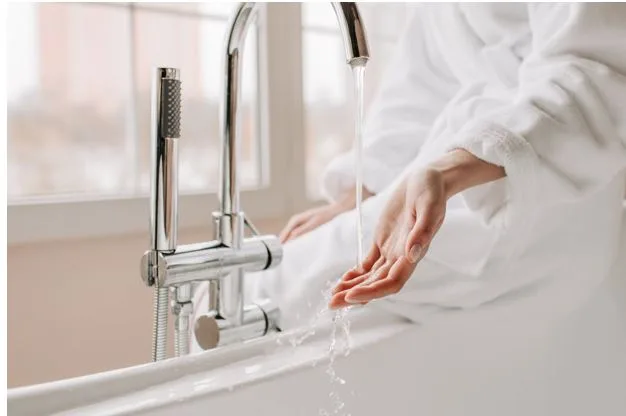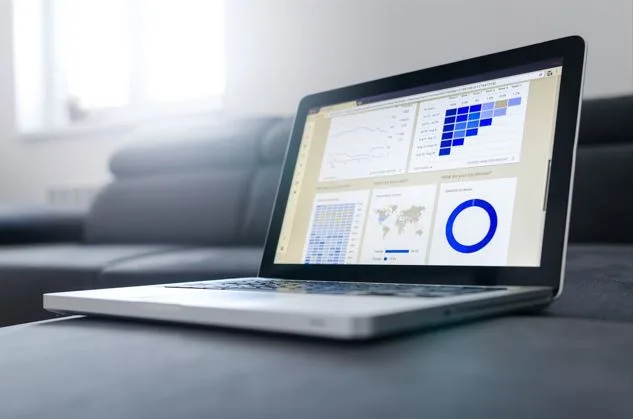How Hard Water Affects Your Home’s Plumbing and Appliances
If you live in Missouri, you’ve probably heard about hard water or experienced its effects firsthand. Maybe you’ve noticed cloudy spots on your glassware, stubborn soap scum in the shower, or reduced water pressure at your faucets. These are common signs of hard water, which is rich in minerals like calcium and magnesium. While hard water is safe to drink, it can take a toll on your home’s plumbing, appliances, and overall comfort over time.
In areas like St. Charles, where mineral levels in the water supply tend to be higher, homeowners often find that hard water causes more than just minor inconvenience. It can shorten the lifespan of water heaters, clog pipes, and make cleaning feel like an uphill battle. The good news? There are ways to protect your home and extend the life of your plumbing and appliances by addressing hard water before it becomes a major problem.
Why Homeowners in Hard Water Areas Need Effective Solutions
Hard water might seem harmless at first, but over time, the minerals it carries can build up inside your plumbing and appliances. This buildup, often called “scale,” can cause blockages, lower water flow, and reduce heating efficiency. For residents in St. Charles, these issues are fairly common because the area’s naturally occurring minerals make the local water supply harder than average.
One of the most reliable ways to combat these effects is by installing a water softener system. If you’re a homeowner in search of water softener systems in St. Charles, MO, there are multiple licensed professionals in the area who provide affordable, high-quality solutions. These systems remove calcium and magnesium ions from the water and replace them with sodium or potassium, effectively softening the water before it enters your pipes and appliances. The result is smoother operation, fewer plumbing issues, and longer-lasting fixtures.
Water softeners not only prevent scale buildup but also improve water heater performance, reduce soap and detergent waste, and lower maintenance costs. In short, soft water helps your entire plumbing system function more efficiently, which translates to cleaner water, less wear and tear, and better overall comfort in your home.
The Science Behind Hard Water and Scale Buildup
To understand why hard water causes so many issues, it helps to know a bit about how it works. Hard water contains dissolved minerals that don’t go away easily. When this water is heated or evaporates, those minerals are left behind as a hard, chalky residue called scale. Over time, this buildup accumulates inside your pipes, faucets, and water-using appliances.
Inside plumbing systems, scale acts like plaque in your arteries. It gradually narrows the space through which water can flow. This leads to reduced water pressure and inconsistent heating. Water heaters are particularly vulnerable because they heat water constantly, accelerating scale formation on heating elements and tank walls. As a result, the system has to work harder and consume more energy to maintain the same temperature.
Without preventive measures, these deposits can corrode pipes and eventually cause leaks, making repairs more frequent and expensive.
How Hard Water Damages Appliances
Hard water doesn’t stop at your plumbing. It also wreaks havoc on the appliances you use daily. Dishwashers, washing machines, and coffee makers all suffer when exposed to mineral-rich water. For example, dishwashers often leave cloudy spots or film on glasses because the minerals interfere with the cleaning process. Washing machines experience scale buildup that reduces detergent effectiveness, leaving clothes feeling stiff or looking dull.
Water heaters take some of the hardest hits. The buildup of scale on heating elements forces them to work harder, which drives up energy use and shortens their lifespan. Even smaller appliances like kettles and coffee makers can accumulate limescale that affects performance and taste.
Over time, this buildup means more maintenance, higher energy bills, and premature replacements. Using soft water helps appliances run smoothly, clean more effectively, and last longer—saving you money and frustration.
Plumbing Problems Caused by Hard Water
Hard water buildup can quietly damage your plumbing system long before you notice visible signs. Minerals from the water settle inside pipes, forming layers of scale that gradually reduce their diameter. As the buildup worsens, water pressure drops, and appliances like dishwashers or showers may deliver inconsistent flow.
The added strain on your pipes can lead to leaks, clogs, and even burst sections in extreme cases. Older homes with metal pipes are particularly vulnerable since metal surfaces attract mineral deposits more easily than modern plastic piping.
Homeowners often notice early warning signs like discolored fixtures, rough water flow, or strange noises in their plumbing. Unfortunately, by the time these symptoms appear, much of the damage is already done. Regularly maintaining your plumbing and using treated water can prevent these hidden problems from becoming costly repairs.
How Hard Water Affects Everyday Cleaning and Comfort
Beyond damaging your plumbing and appliances, hard water also affects daily life in smaller but equally frustrating ways. Soap doesn’t lather well in hard water because minerals interfere with the cleaning process, leaving residue behind. You might find that dishes have water spots even after being cleaned or that your shower walls collect soap scum faster than usual.
Laundry washed in hard water often feels stiff, and clothes can lose color over time. Even your skin and hair may feel dry after bathing because minerals leave behind a residue that blocks moisture. Over time, these small annoyances add up, making simple chores more time-consuming and less effective.
Switching to softened water can transform these everyday routines. With soft water, soaps and detergents work better, dishes sparkle, and fabrics stay soft longer. Plus, showers feel more refreshing, leaving your skin and hair smoother.
Preventing Hard Water Damage and Protecting Your Home
While the effects of hard water can be frustrating, they’re entirely preventable. Installing a water softener is one of the most effective ways to protect your plumbing and appliances from long-term damage. By filtering out calcium and magnesium, a softener ensures that only softened water circulates through your home’s pipes.
In addition to installing a water softener, regular upkeep goes a long way in managing hard water’s effects. Cleaning faucets and showerheads with vinegar can help dissolve mineral deposits, and draining your water heater once a year removes any buildup inside the tank. Monitoring water pressure also helps catch problems early. If pressure drops suddenly, it could signal that scale buildup is starting to restrict flow.
Working with a professional plumber ensures your water softening system is properly installed, maintained, and adjusted to meet your household’s needs. By taking these steps, you can protect your investment and enjoy the long-term benefits of clean, efficient water.
Hard water may not seem like a big deal at first, but its effects can quietly damage your home’s plumbing, appliances, and even daily comfort. From reduced water pressure to costly repairs, the long-term consequences of ignoring hard water are far more expensive than addressing it early.
When you take steps to reduce mineral buildup and improve water quality, you’re not just extending the life of your plumbing and appliances. You’re making your entire home more comfortable, efficient, and enjoyable.





